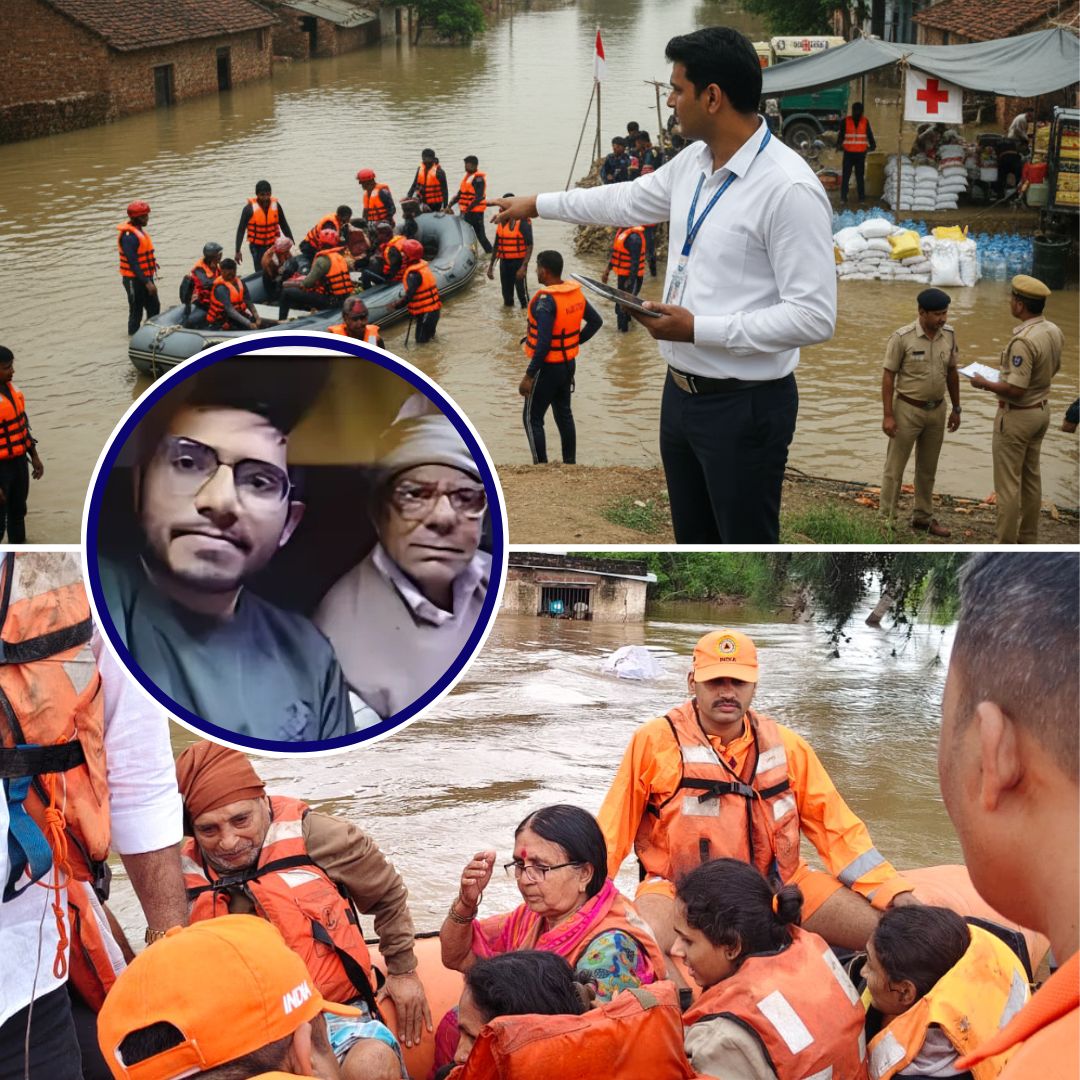In Dharashiv, Maharashtra, IAS officer Mainak Ghosh, CEO of the Zilla Parishad, returned to the frontline of flood relief operations less than 24 hours after losing his father on 27 September 2025. Despite his personal tragedy, he prioritised the urgent needs of flood-affected villages, overseeing rescue teams and aid distribution in waterlogged areas.
His actions have been hailed as an extraordinary example of public service by officials and deeply touched the local community. Ghosh downplayed media attention, stating he was simply fulfilling his duty.
Leading Through Crisis
Heavy monsoon rains left Dharashiv district grappling with floods that submerged 92 villages and destroyed nearly 63,000 hectares of crops, displacing thousands of families. In this dire situation, Mainak Ghosh chose to forgo the traditional mourning period after his father’s passing and immediately resumed his role in disaster management.
Walking through flooded streets and monitoring relief efforts, he personally directed rescue operations to ensure aid reached the most vulnerable people quickly.
Background of Commitment
Mainak Ghosh, a 2019-batch Maharashtra cadre IAS officer with a Ph.D. in Biochemistry, has long been recognised for his administrative acumen and compassionate approach. While customary practices encourage officials to pause duties for mourning, Ghosh prioritised the pressing needs of a community devastated by natural calamity.
Coordinating multiple rescue teams, he ensured that temporary shelters, food supplies, and medical aid were promptly delivered. His swift return not only helped mitigate immediate suffering but also underscored the personal sacrifices public servants often make in times of crisis.
Maharashtra Flood Impact in Dharashiv and Marathwada
The 2025 monsoon season brought unprecedented rainfall to Maharashtra’s drought-prone Marathwada region, especially Dharashiv district. Receiving about 148% of its normal rainfall between June and September, Dharashiv experienced devastating flash floods. Over 159 villages across six talukas, including Dharashiv, were submerged, affecting more than 25,000 people with thousands displaced.
The torrential rains damaged over 2.26 lakh hectares of crops and destroyed homes, with at least 11 lives lost in the wider region including districts like Solapur and Jalna. Infrastructure, such as roads, bridges, and embankments, suffered extensive damage, isolating many villages and complicating rescue operations.
Farmers faced near-total crop destruction, including key Kharif crops like soybean, cotton, maize, and pigeon pea. With fertile topsoil washed away, livelihoods were severely disrupted, pushing many families into precarious situations. District officials and state government agencies are conducting damage assessments and have urged for quick relief measures and compensation to support affected farmers and villagers.
Rescue teams from the National and State Disaster Response Forces continue working in challenging conditions to provide aid, while authorities have issued warnings about continued heavy rains. The disaster underscores the acute vulnerability of the region to climatic extremes, demanding enhanced preparedness and sustainable management going forward.
The Logical Indian’s Perspective
This poignant episode showcases the essence of true public service, blending professional responsibility with human empathy. Mainak Ghosh’s choice to serve his community in the midst of profound personal loss is a powerful reminder of the resilience and compassion that must underpin leadership. At The Logical Indian, we see this story as a lesson in kindness and commitment that can restore public trust in institutions. Building societies rooted in empathy requires recognising and nurturing such courage among public servants.













